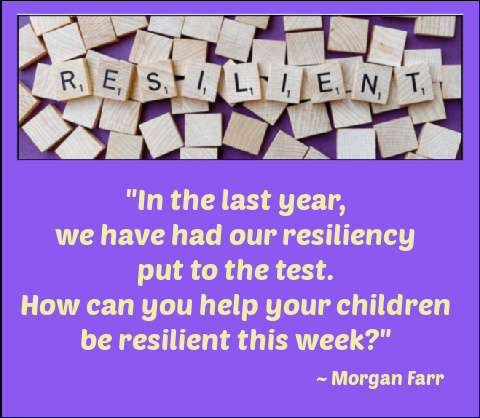"Show Off!"—Lessons in Humility
In this Biblical Thinking UPGRADE, Dawn writes about the subtle but destructive problem of pride.

As a high school freshman attending a school on a Naval base in Keflavik, Iceland, my family had the unique opportunity to live off-base in a quonset hut. We loved it, but it was terribly tight living quarters! We joked that we could touch all the walls at the same time—not exactly true, but funny.
One day, I put one hand on a kitchen counter, and another on a nearby dining chair, and swayed my legs back and forth in an exaggerated swing. I imagined I was an Olympic gymnast on the parallel bars.
"Hey, look at me!" I yelled to my family. "I'm going for the gold!" (I was such a show off at that age, always wanting attention.)
Suddenly, my hand slipped from the counter and I crashed to the hard floor.
My rear end hurt, but the embarrassment was far worse. My normally reserved dad could not stop laughing!
And oh, how my dad loved to share that story with others, sometimes adding, "Pride goes before a fall, right, Dawn?"
The actual scripture he quoted is Proverbs 16:18: "Pride goes before destruction, a haughty spirit before a fall." But I like the way The Message states it:
"First pride, then the crash—the bigger the ego, the harder the fall."
That pretty much sums up my freshman year in high school. Big ego. I thought I was "all that."
Sinful pride is all about Me, Myself, and I. It crowds out God and others.
Over the years, the Lord used a number of other embarrassing circumstances to teach me humility.
- Once I fell off a big trampoline at the base gym, showing off in front of a bunch of sailors.
- Another time I cracked my head on an icy pond while playing "Crack the Whip" on ice skates. Looking at my "admirers," I didn't notice the big rock in my icy path.
Years later, God saved me from myself and brought me into His family, and I learned that terrible pride was the cause of Satan's big downfall when he was cast from Heaven (symbolically described in Isaiah 14:12-14).
I also read about many biblical characters who were sinfully proud:
- Nebuchadnezzar was a proud pagan king (Daniel 4:28-35).
- Haman was proud in his hatred of Queen Esther and the Jews (Esther 5:11).
- Uzziah was a good king, but he fell with religious pride (2 Chronicles 26:16-19).
- The proud Pharisee was rebuked for his superiority attitude (Luke 18:11-13).
- Jesus exposed the proud Jewish "teachers of the law" (Mark 12:38-40).
- And the Laodicean Church struggled with spiritual pride (Revelation 3:14-17).
Signs You Might Be a Sinfully Proud Person
The Hebrew word for pride is zadown, which means insolence and arrogance. The Greek word is alazoneia, which means empty, bragging, and insolent.
In any language, pride is not a pretty picture!
There are both blatant and subtle signs of pride—and clearly, Christians can be proud people!
Here are just a few ways Christ-followers exhibit this sin.
- Bragging
- Acting superior
- Perfectionism
- Entitlement
- Playing the "Martyr"
- Fault-finding
- A Harsh Spirit
- Superficiality
- Defensiveness
- Presumption before God
- Being desperate for attention
- Neglecting others
The Bible says arrogance, or pride, is a sin within our heart that defiles us (Mark 7:21-23). In pride, a wicked person does not seek God—in fact, there is no room for God! (Psalm 10:3-4).
I've often asked God to help me love the things He loves, and hate the things He hates. Clearly, God DETESTS the "proud of heart" (Proverbs 16:5).
How to Avoid the Sin of Pride
1. Learn Humility
First, we have to acknowledge that pride is sin and that we desperately need to learn humility.
We need to arm ourselves with truth about pride and humility, such as:
"Pride of life" is worldly; it does not come from God (1 John 2:16-17).
Pride brings disgrace, but humility brings wisdom (Proverbs 11:2).
Pride brings a person low, but the lowly in spirit gain honor (Proverbs 29:23).
God opposes the proud, but shows favor to the humble (James 4:6; 1 Peter 5:5).
God will humble those who exalt themselves (Matthew 23:12).
Choose humility, and God will lift you up at the right time (1 Peter 5:6).
2. Boast Only of the Lord
We need to stop boasting about ourselves and cultivate a healthy, sin-free way to boast!
Paul said, "may it never be that I would boast, except in the cross of our Lord Jesus Christ...." (Galatians 6:14a). And he practiced the right kind of boasting: "Therefore I glory in Christ Jesus in my service to God" (Romans 15:17).
In 1 Corinthians 1:31, Paul says we should "boast in the Lord" too.
Note: This is not sinful boasting. It actually means boasting OF the Lord.
This kind of boasting has nothing to do with trusting in worldly possessions—the "chariots and horses" of our day (Psalm 20:7); and it's not about speaking blessings into existence (as some preachers like to say).
So what are we suposed to boast about?
- We can boast of God's attributes.
- And we can boast of what God has done, is doing, or will do for us.
In these things, we can boast of Him "all day long" (Psalm 44:8).
In 1 Corinthians 1:31, Paul was actually quoting from Jeremiah:
Thus says the LORD: "Let not the wise man boast in his wisdom, let not the mighty man boast in his might, let not the rich man boast in his riches, but let him who boasts boast in this, that he understands and knows me, that I am the LORD who practices steadfast love, justice, and righteousness in the earth. For in these things I delight," declares the LORD. (Jeremiah 9:24).
The truth is, in ourselves we have no reason to act "puffed up" or superior. We have nothing that we did not receive from God (1 Corinthians 4:7).
We cannot even boast about our salvation, because it is a free gift (Ephesians 2:8-9), and God chose us for His own purposes (1 Corinthians 1:26-30)—not because of anything good He saw in us.
All glory must go to God alone.
God told Isaiah, I am the Lord; that is my name; my glory I give to no other (Isaiah 42:8a).
That's especially hard for people who minister on platforms and stages to remember, right? It's too easy to steal His glory. Preachers, teachers, and others in ministry must never forget we are to do all to the glory of God (1 Corinthians 10:31).
3. Serve Others in Humility
Whereas pride can lead to fault-finding, the humbe person will attend to the log in his own eye instead of nit-picking about the speck in a fellow-believer's eye (Luke 6:42).
Prideful thinking can keep us from humble serving!
When we serve others, we get our eyes off ourselves. But first, we need to get our eyes on Jesus to see what He sees!
Jesus was humble (Philippians 2:5-11), and when we see through our Savior's eyes, we will begin to value people above ourselves, and we we will notice ways we can help and serve them (Philippians 2:3; Mark 10:45)—just like Jesus did!
Humility was one of the characteristics emphasized in the early church, because the Apostles knew humility would lead to loving service. Peter exhorted believers to love others, be compassionate, and be humble (1 Peter 3:8). Paul encouraged Christians to "with all humility and gentleness," bear with one another in love (Ephesians 4:2).
When we learn humility, we will be better prepared to serve God and others.
God doesn't want us to show off—unless we are showing HIM off to the world. As some have said, "Make God famous!"
Can you say with the Psalmist, "My soul will make its boast in the Lord; the humble will hear it and rejoice" (Psalm 34:2)? Which of the three ways to avoid the sin of pride would be most helpful in your life?
Dawn Wilson, founder and President of Heart Choices Today, is a speaker and author, and the creator  the blog, Upgrade with Dawn. She is a contracted researcher/reviewer for women's teacher and revivalist, Nancy DeMoss Wolgemuth at Revive Our Hearts, and is a regular columnist at Crosswalk.com. She and her husband Bob live in sunny Southern California, and Dawn has traveled with Him in Pacesetter Global Outreach. They have two grown, married sons, three granddaughters and a rascally maltipoo, Roscoe.
the blog, Upgrade with Dawn. She is a contracted researcher/reviewer for women's teacher and revivalist, Nancy DeMoss Wolgemuth at Revive Our Hearts, and is a regular columnist at Crosswalk.com. She and her husband Bob live in sunny Southern California, and Dawn has traveled with Him in Pacesetter Global Outreach. They have two grown, married sons, three granddaughters and a rascally maltipoo, Roscoe.
Graphic adapted, courtesy of Chad Madden at Unsplash.
 Post a Comment → Posted on
Post a Comment → Posted on  Thursday, October 28, 2021 at 1:17PM
Thursday, October 28, 2021 at 1:17PM  Arrogance,
Arrogance,  Arrogant,
Arrogant,  Dawn Wilson,
Dawn Wilson,  Humble,
Humble,  Humility,
Humility,  Proud Person,
Proud Person,  Sin of Pride,
Sin of Pride,  Upgrade with Dawn Upgrade Your Life
Upgrade with Dawn Upgrade Your Life  Biblical Thinking,
Biblical Thinking,  Character,
Character,  Humility
Humility 









